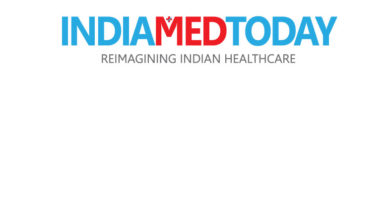Glenmark Pharma
-
Dealing with the surge
Anti-diabetic drugs, digitalisation of treat ent modalities and innovation of devices, are likely to transform diabetes treatment in India. Predicting…
Read More » -
Glenmark Pharma in definitive agreement with Nirma
To divest a 75 per cent stake in its subsidiary, Glenmark Life Sciences Glenmark Pharmaceuticals has entered into a definitive…
Read More » -
Glenmark launches Teneligliptin + Dapagliflozin Fixed-Dose Combination for adults with Type 2 diabetes
The company aims to improve glycemic control in adult patients with uncontrolled type‐2 diabetes Glenmark Pharmaceuticals became the first to…
Read More » -
Glenmark Pharma to launch nasal spray Ryaltris in EU
Ryaltris is indicated for symptomatic treatment of seasonal and perennial allergic rhinitis in adults and children over 12 years of…
Read More » -
CDSCO gives nod to Glenmark’s acne drug Tazarotene
Tazarotene is a vitamin A derivative that acts by slowing down skin cell growth and blocking certain substances The Central…
Read More » -
Glenmark launches kidney cancer treatment drug in India
The drug is priced 96 per cent lower than innovator brand Glenmark Pharma has launched a generic kidney cancer treatment…
Read More » -
Glenmark Pharma gets US FDA nod for seizure treatment drug
The approved product is a generic version of Qudexy XR Capsules of Upsher-Smith Laboratories Glenmark Pharma has received final approval…
Read More » -
Glenmark Pharma gets US FDA nod for nervous system stimulant drug
The approved product is a generic version of Evekeo tablets of Arbor Pharmaceuticals Glenmark Pharma has received final approval from…
Read More » -
Glenmark Pharma gets US FDA nod for erectile dysfunction treatment drug
The company also received tentative approval from the US FDA for Gabapentin Enacarbil extended-release tablets Glenmark Pharmaceuticals has received final…
Read More » -
Glenmark Pharma gets nod to market relapsing multiple sclerosis drug
Glenmark Pharma has received final approval from the US health regulator for Dimethyl Fumarate delayed-release capsules, used for treatment of…
Read More »









